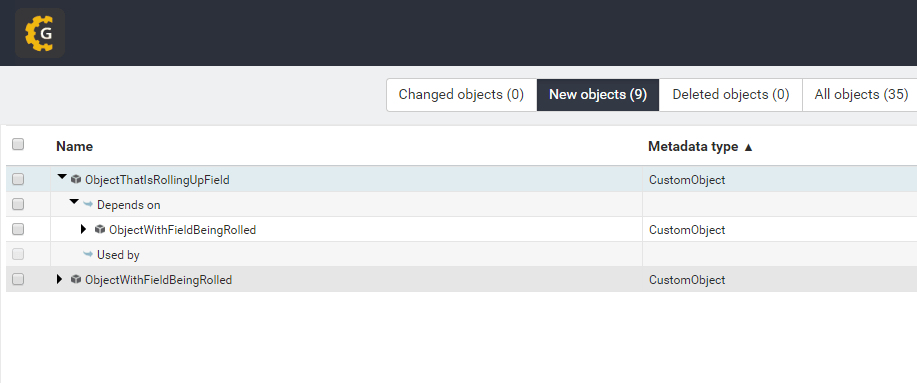Deploying any types of data or metadata on Salesforce can throw up potential issues, but Gearset can help! In this post, we take a look at how Gearset can help deploy roll-up summary fields.
Roll-up summary fields
Salesforce allows you to create roll-up summary fields on master objects, in a master-detail relationship. These roll-up fields perform calculations on the fields that they roll up, such as summing the numbers in that field. This is useful for things such as calculating the sum of certain kinds of invoices.
Why deployments can fail due to roll-up summary fields
Roll-up summary fields have dependencies on a couple of other fields. They depend on the field they’re rolling up in the target object, and also the master-detail relationship field in the target object - Salesforce calls these the summarizedField and the summaryForeignKey.
Deployments trying to take roll-up summary fields between orgs, for example by use of the Force.com Migration Tool, will fail if you forget to include the depended upon fields in your deployment package. This means you’ll have to perform time consuming trial and error deployments until you’ve finally managed to find all of these dependencies and put them together into a deployment package.
This failure used to happen in Gearset, and looked something like this:

How Gearset solves the problem for you
NOTE: Gearset’s comparisons have had an upgrade! We’re updating all our blog posts with the new UI images — but in the meantime, you can learn more about what’s changed.
We’ve added in a new feature to the underlying dependency analysis engine in Gearset so that we can detect when you’re trying to make this type of change.
Gearset will now tell you when an object with a roll-up summary field has a dependency on another object (the one you’re rolling up).

In addition to giving you this information, Gearset will explicitly warn you when you perform deployment, so that you have a final chance to take any missing dependencies with the roll-up summary field.

This is one of the many ways that Gearset’s metadata deployment tool increases the chances of successful deployments by helping you understand the relationships between the metadata in your orgs.
Get started with Gearset today
To deploy roll-up summary fields easily, with all the relevant dependencies, start a free 30-day trial now with nothing to install in your orgs, or book a demo of Gearset today.



